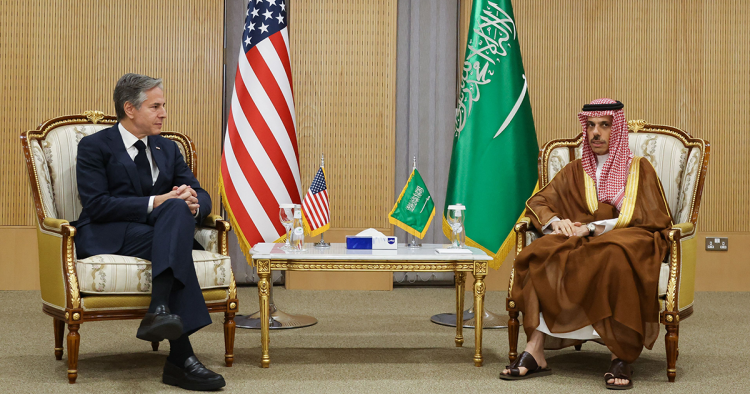This article was co-authored by Bilal Y. Saab, MEI senior fellow and director of the Defense and Security Program, and Chen Zak Kane, director of the Middle East Nonproliferation Program at the James Martin Center for Nonproliferation Studies, for the Bulletin of the Atomic Scientists.
Saudi leaders have stepped up their plans for developing peaceful nuclear energy, inviting technical bids to the planned construction of two 1.4 gigawatt-electric nuclear reactors and restating the kingdom’s intention to use domestic uranium resources for producing low-enriched uranium as nuclear fuel.
Although open to cooperating with any country willing and able to support its atomic aspirations, Saudi Arabia so far has preferred US nuclear technology. Saudi leaders are now pushing for a joint US-Saudi domestic project on nuclear energy, which would follow the US-Saudi cooperation model of Aramco, the Saudi state oil company. Recent reports suggest that Washington may also consider upgrading military relations if the kingdom normalizes its ties with Israel. In recent weeks and months, President Biden’s top diplomat and national security aides travelled to Riyadh to discuss these very issues with Saudi officials.
But there is one sticking point in US-Saudi nuclear negotiations: Per Saudi wishes, uranium enrichment shall happen on Saudi soil, even as US companies would oversee the development of new nuclear reactors. But Washington has stated that it would consider a deal with Riyadh if it were like the one it brokered with the United Arab Emirates in 2009, which guarantees US cooperation in return for a ban on enrichment and fuel reprocessing—a deal known as the “gold standard.”
To increase the chances of a diplomatic breakthrough, Saudi Arabia has an opportunity to assuage at least some US concerns about its nuclear ambitions and create a more credible and comprehensive profile for itself as a responsible nuclear power by investing in effective nuclear safety and security measures.
Photo by AHMED YOSRI/POOL/AFP via Getty Images
The Middle East Institute (MEI) is an independent, non-partisan, non-for-profit, educational organization. It does not engage in advocacy and its scholars’ opinions are their own. MEI welcomes financial donations, but retains sole editorial control over its work and its publications reflect only the authors’ views. For a listing of MEI donors, please click here.













